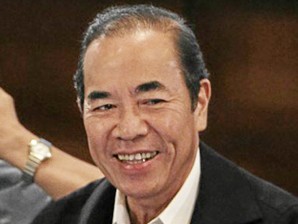MANILA, Philippines — Public Works and Highways Secretary Rogelio Singson has expressed disappointment over the failure of many DPWH engineers and projects managers in passing the agency’s first-ever “promotional examinations.”
Speaking during the recent annual convention of the District Engineers’ League of the Philippines in Cebu City, Singson described as “dismal” the test results.
He did not disclose the number of successful examinees and test flunkers, but said the DPWH – in coordination with the Civil Service Commission – conducted the tests in Oct. 2011 and June this year.
The examinations, which covered technical, analytical and communication skills, aimed to “validate the capability and competency of those holding managerial positions, such as district and assistant district engineers,” noted Singson.
According to the DPWH head, the department would continue holding similar exams, stressing that “professionalization of the DPWH organization and its employees are among the priorities of the DPWH leadership.”
“The competency of DPWH men in the field will be the hallmark of good leadership, which will be the key to the sustained success of the organization,” he said.
Despite the not so encouraging test results, Singson said “the DPWH management committee is compelled to (promote) deserving candidates.”
“I encourage the unsuccessful examinees to constantly strive for self-improvement to meet their respective career aspirations,” he also said.
A check with the DPWH public information division disclosed that among those who passed the qualifying exams included the following DPWH executives: Director Huillo Belleza from Region 4-B; Director Ador Canlas from Region 3; and Director Melvin Navarro from Planning Service.
Other qualifiers included the following engineers: Smile Fermin from Region 1; Editha Babaran, Arnold Sabug and Marifel Andes, all from Region 2; Loreta Malaluan, Tito Jesus Salvador and Nenette Igna, all from Region 3; Isidro Encarnacion, Region 4-A; Tiburcio Canlas, Region 4-B; Rebecca Roces, Richard Emmanuel Ragragio, and Benjamin Buitre Jr., Region 5; Jaime Javellana, Region 6; Fernando Santander, Region 7; Edgar Tabacon, Alvin Ignacio and Irwin Antonio, Region 8; Cayamombao Dia, Region 9; Cesar Hipona Jr., Region 10; Allan dela Peña, Region 11; Rey Francisco, Region 12; Wenceslao Leaño Jr., Region 13; Elemihicon Lorenzana, Romelda Bangasan, Charles Sokoken Sr., and Clifton Balencirina, Cordillera Administrative Region; and Elena Diaz, Dolores Hipolito, Maximo Bulanadi, Projects Management Office, among others.
Singson stressed anew the need to improve personnel efficiency by reducing red tape and streamline DPWH processes and procedures.
He called anew for values transformation to restore public trust in the DPWH, said to be one of the most corrupt government agencies.
Singson asserted that “while the DPWH continues to partner with other government agencies, let us not lose sight of our target outcomes during the medium term, which covers the period 2011 up to 2016.”
Next year, the DPWH “will continue to pursue the pavement of arterial and secondary roads and bridges” nationwide.
“Be reminded of our target of 15,872 kilometers of national arterial roads, 15,370 km of national secondary roads and 7,958 bridges with a total length of 345,978 lineal meters,” said Singson.
With its P106.5-billion budget for 2013, “the DPWH will be well-positioned to pursue and achieve these goals,” he pointed out.
“Of the total allocation, P22.8 billion will be used to preserve the existing road network, including the preventive maintenance of 1,611 km of road and the rehabilitation of 1,018 km of road. Another P26.2 billion will be used for the cementing of 1,175 km of gravel-type roads, P15.9 billion more than the 2012 allocation,” Singson announced.
According to the DPWH boss, “we certainly have a lot to do and looking at what we have accomplished so far, we still have a lot of catching up to do and strive to perform credibly in the coming years.”
“May the implementation of the performance-based incentive systems for government employees, designed to reward performers for meeting their targets, inspire our people to give their 101 percent performance,” Singson added.
